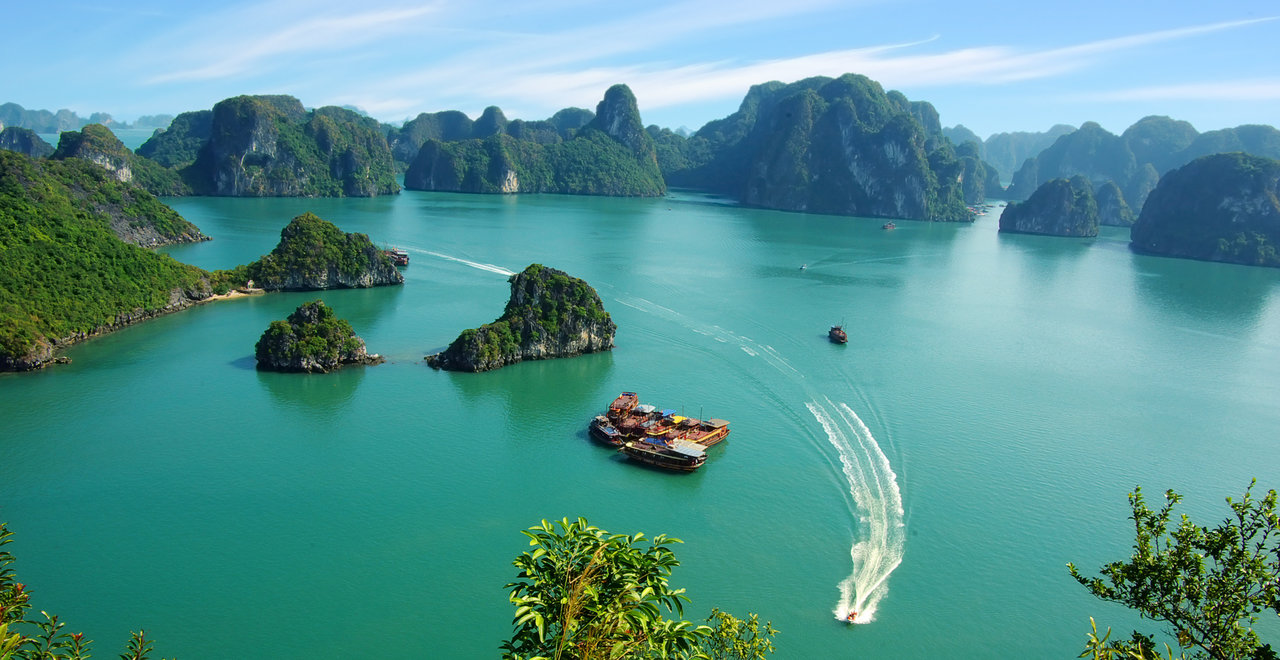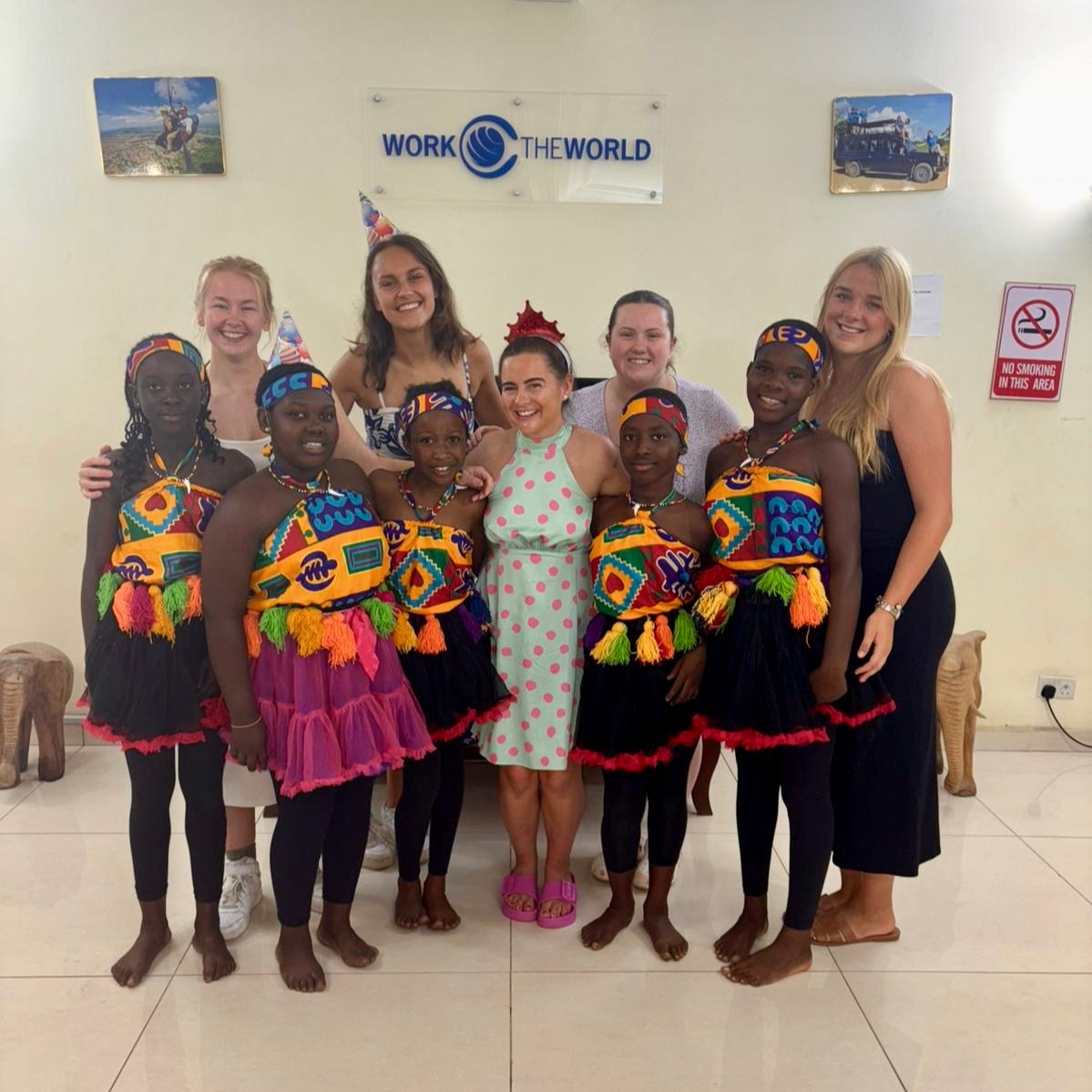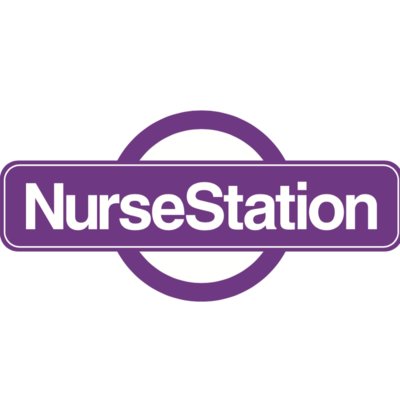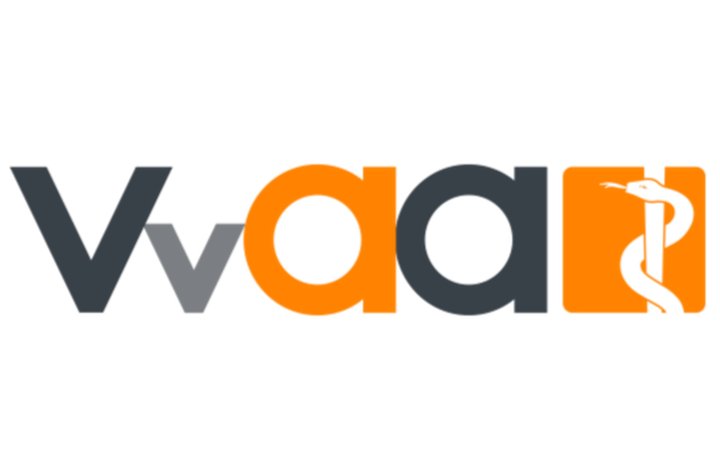University of Sunderland 2024
Before I enrolled in my physiotherapy degree, I vowed that if I could do a placement overseas, I would. I have previously worked abroad and knew that a placement in a medical field in a country such as Vietnam would be a valuable experience. After searching for companies, I found Work the World and read reviews from past students...the rest is now history!
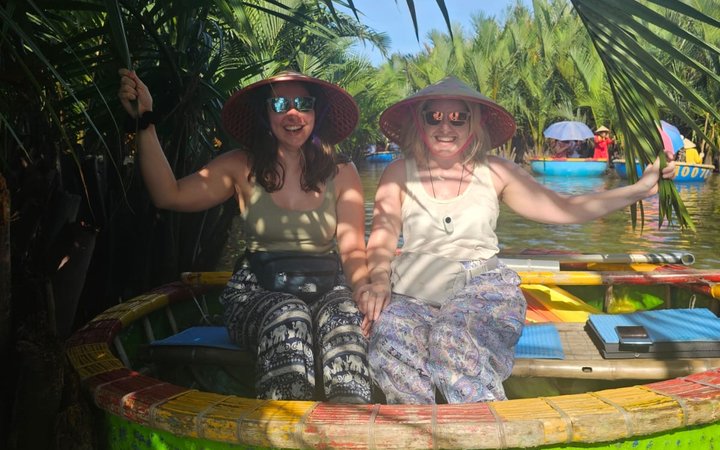
The hospital in Hue was very different to those in the UK. Set over a large area, there are many different buildings for different specialities, and you can see patients walking the streets in their hospital pyjamas. We were lucky that the physiotherapy department had aircon, as the rest of the hospitals only had fans if they were lucky!
The staff within the hospital were the most welcoming and warm people I have ever met (especially in the physiotherapy department).
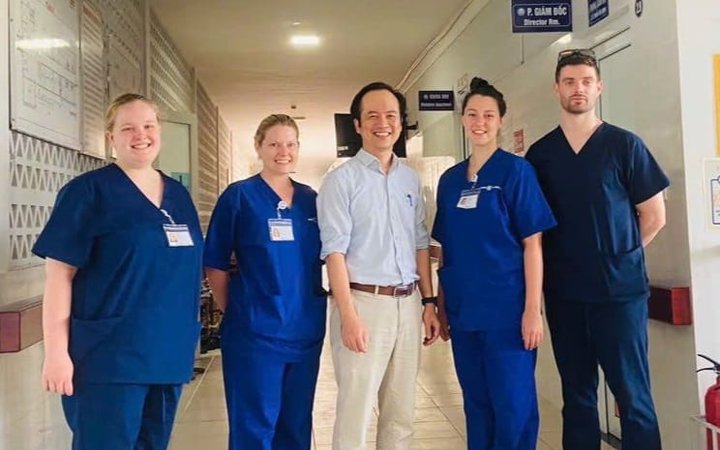 The first day of placement felt a little daunting, only until we were through the main door and had been introduced to everyone.
The first day of placement felt a little daunting, only until we were through the main door and had been introduced to everyone.
With a background in massage for 20 years and working in physiotherapy in the UK, I don't get to use my skills as manual therapies are not really encouraged. In Vietnam, manual therapies and traction are very common, meaning I was shown some new techniques for stretching and manipulation. I was also given my own stream of patients daily who wanted massage!
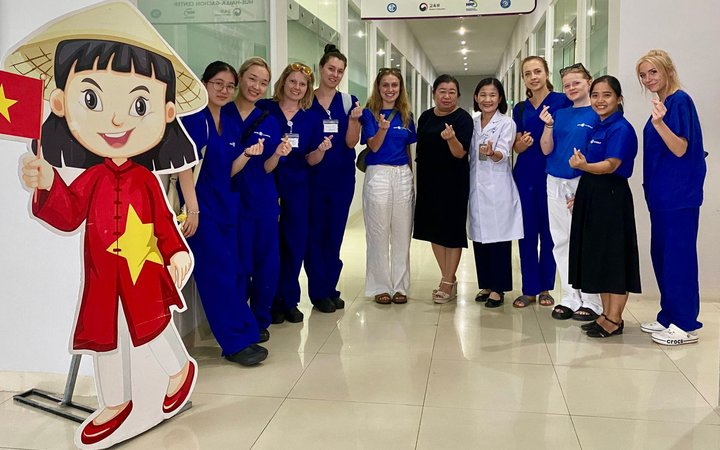
Our head doctor showed us how to read X-rays and how to assess patients with spinal cord injuries. We were able to see patients with conditions we had never seen before and work daily with patients for five weeks.
A lack of equipment meant thinking outside the box a lot and improvising with daily household items as equipment. Some patients could not understand us or were even illiterate, meaning non-verbal communication was essential.
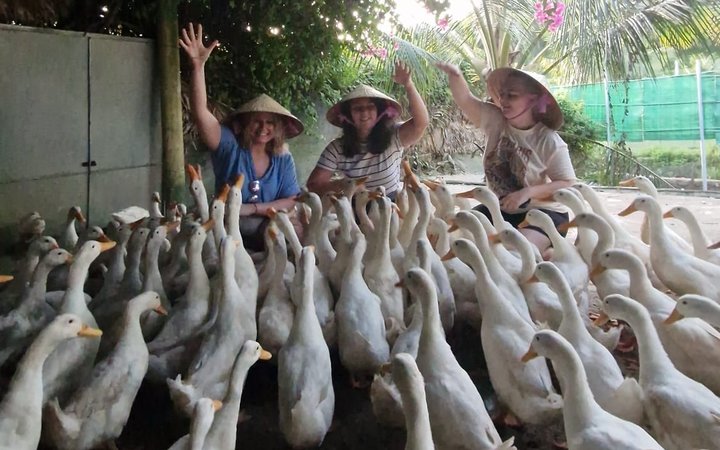
Our head doctor was so accommodating and spent lots of time with us, teaching us different techniques and protocols they have in Vietnam.
Steroid use is very common in Vietnam as it can be purchased over the counter. We experienced a few cases of Cushing's Disease caused by steroid overuse.
A couple of children were receiving daily treatment for CP, carried out by OTs. The parents' education was vital in this treatment so that it could be carried out at home.
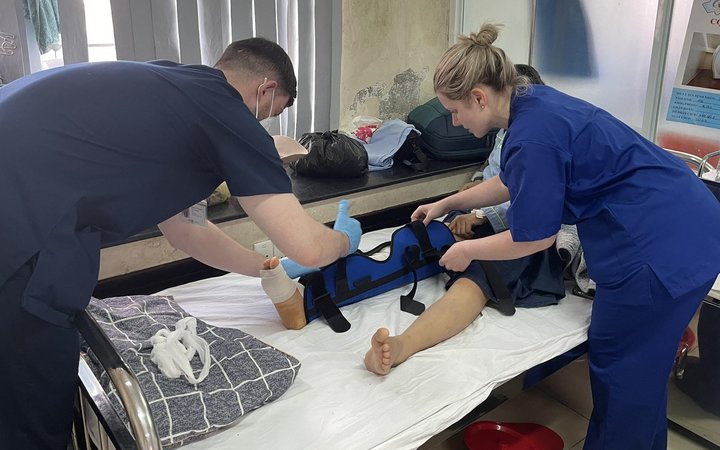
We met a gentleman who was a prisoner in the Vietnam War and escaped to America - he was very interesting to speak to.
There were lots of AS cases, two of which were managing to live a full life full of exercise, and another was a child with a new diagnosis.
Lots of patients needed surgery but were too scared to agree to it or couldn't afford it, therefore required more rehabilitation.
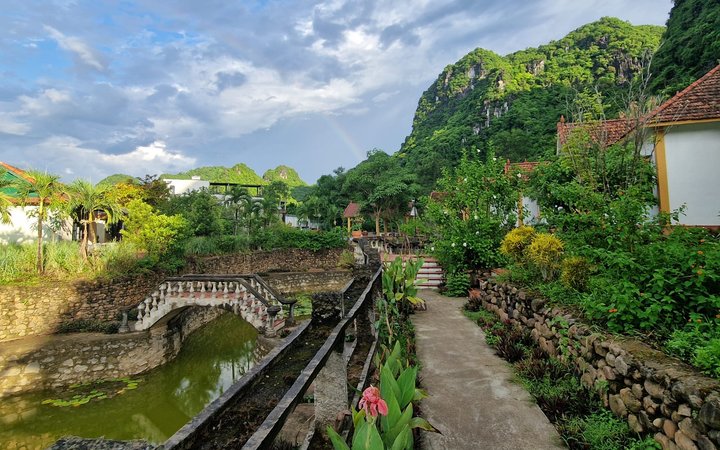
A young girl was involved in a road traffic accident (very common in Vietnam) and was left paralysed. We were able to assess her and speak more with her and her family. This was a very interesting and inspiring case, seeing her return to education years following the operation and with the most can-do, strong attitude.
We were able to donate a slide board for her to help with transfers. We noticed there is a huge lack of access to places for disabled people, and this was reflected in this patient driving an electric wheelchair for up to two hours per day to get to school and not being able to visit places with her friends due to no access.
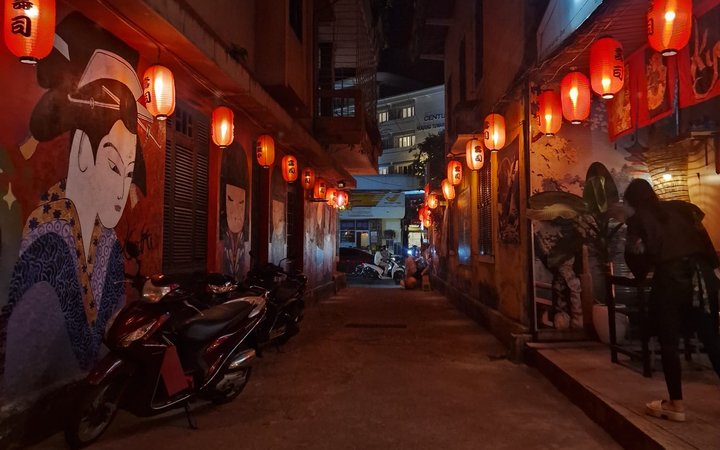
We were able to visit the rehabilitation hospital and took part in one of the first-ever sessions in a children's oncology session.
The hospital has its own herb garden, where traditional medicine is made. We were also able to observe OT sessions, working with stroke patients for ADLs and an acupuncture session.
The hospital staff were very keen to learn from us and our treatment planning.
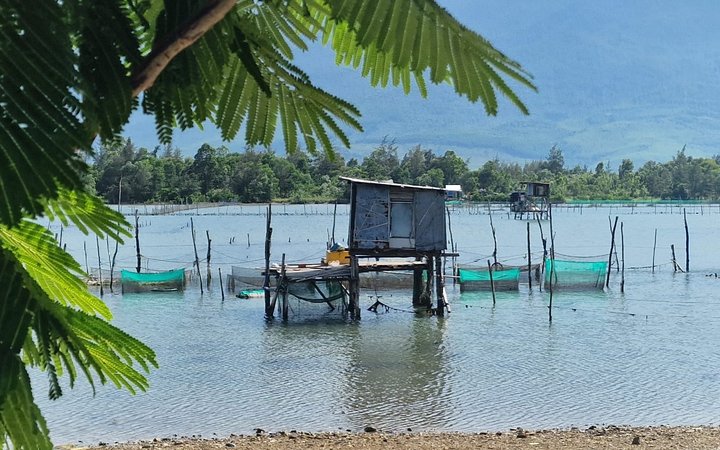
Local staff shared their typical wages, and they seem to work weekends in remote villages where people can't afford to travel for medical treatment. The people in Vietnam (not just the hospital) were so happy and humble, very hard working and passionate about people and happiness.
Following meniscus and ligament surgery for knees, special lockable braces should be used for rehab. However, in Hue, they only have access to soft braces. Children with CP should have splints and braces. However, the only hospitals with facilities to issue such items are hours and hours distance (not achievable for families). Therefore, treatment plans have to be developed to counteract the lack of special splints.
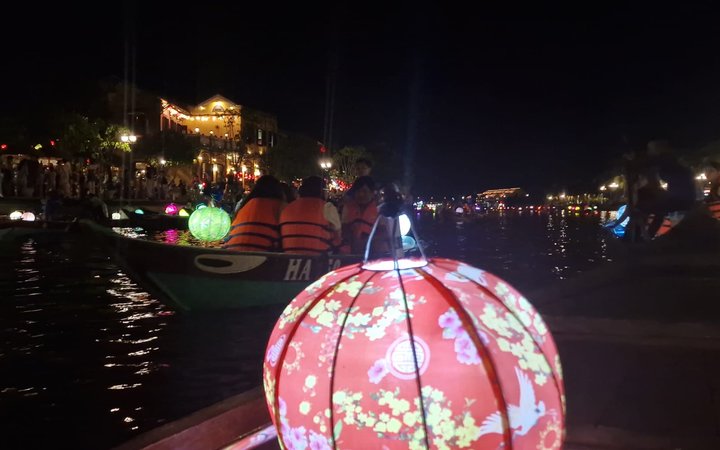
I travelled with my friend from university, and two classmates joined us in Hue. If you don't travel with anyone, the other students on placement and living in the house become like family, and everyone has a WhatsApp group where everyone is included and plans are made.
We had four weekends and managed to travel to Hoi An, where we did the basket boats in Coconut Village, coffee making class, the night market, lantern boats on the river and had shoes made!
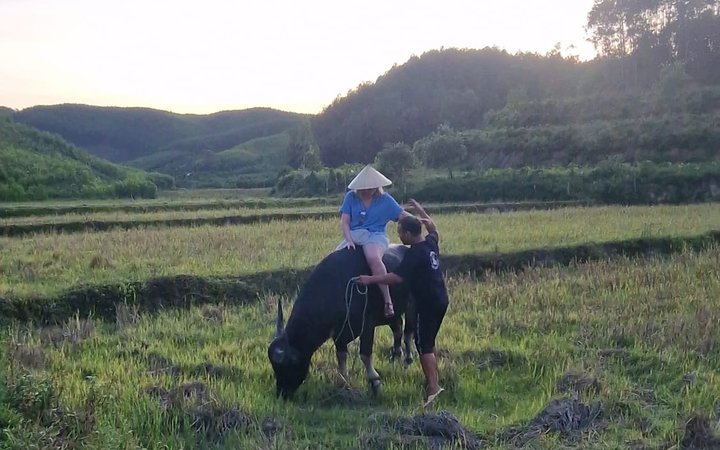
The staff at the house organised a taxi for us, and we stopped at Marble Mountain and Hai Van Pass halfway. We went to Phong Nha and visited Dark Cave, Paradise Cave and the duck stop (Very cute)!
We stayed in the most lovely hostel close by and got the sleeper bus back home. One weekend, we stayed in Hue and visited Imperial City. We learned a lot about the history of Hue and visited the beach (150,000 to enter; however, you get this back for food and drinks)!
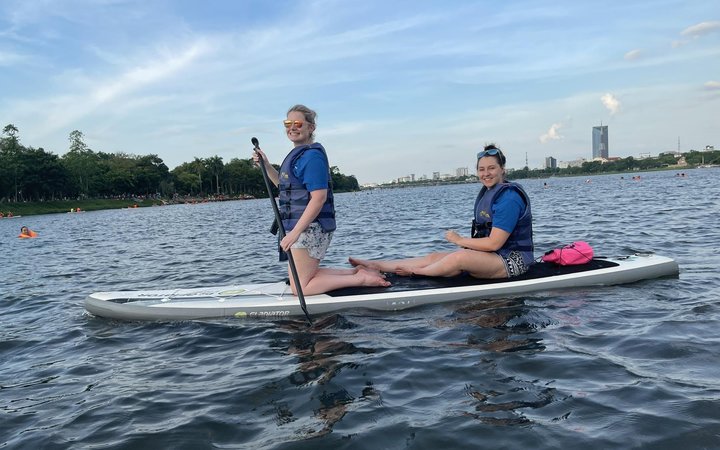
We travelled to DaNang by private bus (the scariest journey of my life) and did a day trip to Ba Na Hills. I'd recommend checking to do trips yourself, so you aren't tied to set times, etc., and get the sleeper train back (recommend getting a train to Da Nang so you get the amazing views of the coast!).
Evenings were spent with language lessons, cooking lessons, BBQ and karaoke/dancing and visiting local bars and restaurants with fellow 'friends'. We went out with the local hospital staff a few times and built some lovely friendships for life.
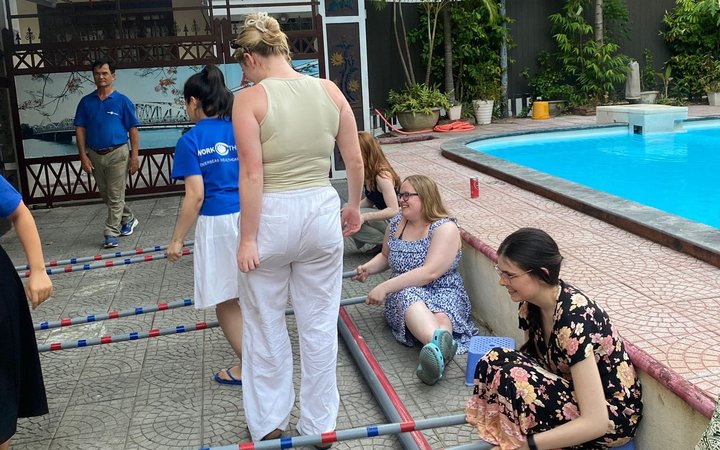
A once-in-a-lifetime experience that you will want to repeat over and over! Tears were shed on both sides when it was time to leave. This incredible experience opens your eyes to just how amazing the NHS really is and how lucky we are as healthcare professionals - something I think all NHS staff should experience. The cultural differences really make you look at life from a different perspective.
Clinically, this placement will make you more resilient and forward-thinking. The staff and patients are so committed to rehabilitation that your role will seem way more accepted and valued.
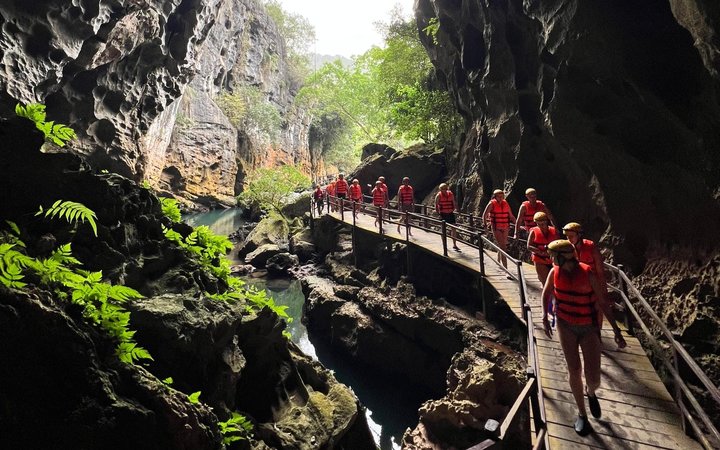
I'd recommend taking part in as many organised activities as you can (language and cooking lessons and BBQ). Google Translate was a lifesaver, as the language is very hard to master. It is encouraged to speak as much Vietnamese as possible, but the staff are very keen to learn English too, maybe make a language list together with the staff, teaching each other words.
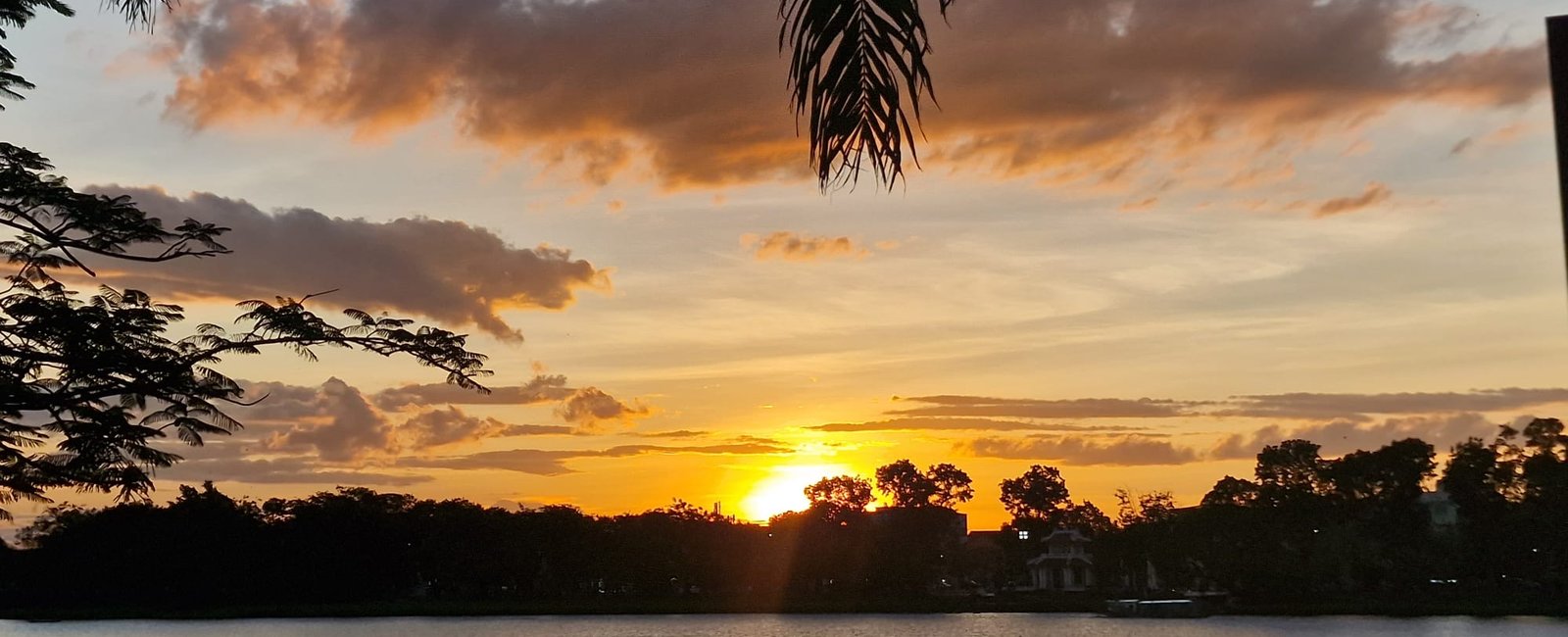
Travel as much as you can! Vietnam is a beautiful country, and I have never felt so safe (even walking alone on an evening). The staff are very keen for you to explore their country and will let you have the odd half-day finish on a Friday so you can travel for the weekend.
Make as many local friends as you can and take the opportunity to socialise with the staff if they arise.
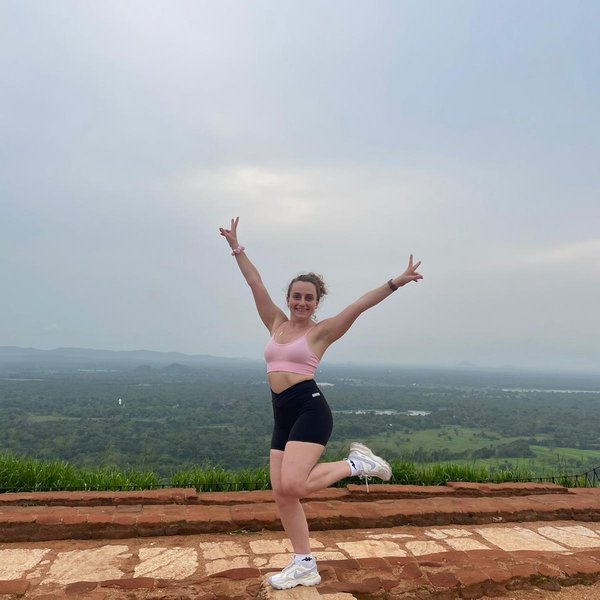
Start Your Journey
Want to go on your own once-in-a-lifetime adventure? Get started below:
Want to go on your own once-in-a-lifetime adventure? Get started below:
